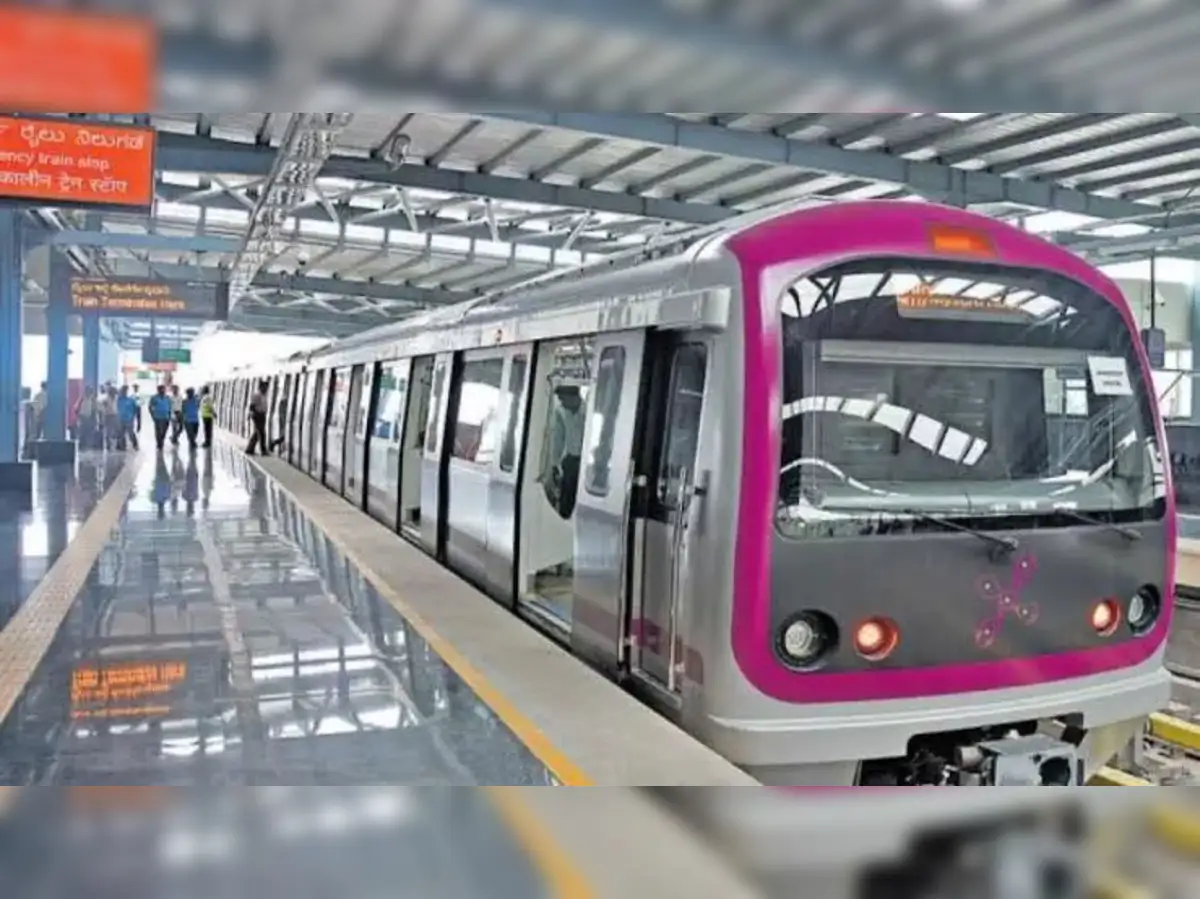A Bengaluru MP has intensified calls for full disclosure on the recent metro fare hike, urging authorities to release the Fare Fixation Committee’s (FFC) report amid concerns over commuter fairness and system transparency. MP critiqued Bangalore Metro Rail Corporation Limited’s (BMRCL) silence over the statutory Fare Fixation Committee report.
The MP urged: “Why hide information? The fare justification must be transparent—commuters have a right to know.” The FFC, established under the Metro Railways (Operations and Maintenance) Act, 2002, is mandated to transparently assess and recommend fare structures. Despite repeated appeals, the FFC report has yet to be published. In response, the BMRCL Managing Director told The Indian Express that the document would be made public shortly—though no firm timeline was offered.
One bone of contention is the steepness of the hike: the FFC recommended a 6.87 per cent year-on‑year increase, whereas BMRCL initially proposed a 105 per cent surge. The final increase—implementing up to a 71 per cent rise with fares capped at ₹90—has faced intense backlash. Commuters and civic advocates have responded with fury. A campaign titled #RevokeMetroFareHike erupted online, with activists demanding hourly and annual pass options to alleviate commuter stress. Bengaluru Central MP also weighed in, arguing that price hikes should match those of bus fares to retain commuter confidence.
In a press release, a public transport policy specialist criticised the opaqueness: “If BMRCL cannot share the fare matrix and revenue data, how can commuters verify the legitimacy of the hike?”. Transparency isn’t the only flashpoint. During FFC deliberations, members and BMRCL officials reportedly travelled to Singapore and Hong Kong—incurring nearly ₹13 lakh in overseas expenses—to benchmark global metro fare models. The tour sparked public rebuke, prompting one legislator to quip that local routes, such as Singasandra, might have yielded more relevant insights.
BMRCL has argued the hike was essential due to rising staff wages (up 42 per cent since 2017), substantial maintenance & administrative cost surges, a 34 per cent rise in electricity bills, and growing security expenses—amounting to ₹7 crore monthly. Additionally, it faces loan liabilities of ₹770 crore in 2024–25, escalating to ₹2,776 crore by 2029–30. Despite these justifications, the passenger response has been marked. Ridership dropped by around 4 per cent after the fares rose—from 8.6 lakh to 8.29 lakh daily—though figures stabilised by the end of February.
Advocates emphasise that public transport must be affordable to discourage private vehicle use and ease urban congestion. A mobility specialist observed: “Making metro pricing prohibitive for the working middle—teachers, service industry workers—risks reversing gains in sustainable urban mobility.” The MP cited international benchmarks. He held up the Moscow Metro as a model—offering high frequency (80‑second train intervals), rational pricing, dense connectivity, and commuter-friendly station design He urged BMRCL to emulate global best practice while ensuring affordability and ethical governance.
Urban analysts stress that opaque fare-setting undermines public trust in civic institutions. “Urban mobility is more than brick and mortar,” commented a sustainable transport strategist. “It’s a pact between system and citizen—transparency is the currency of that pact.” The MP’s letter to BMRCL’s Managing Director marks a second formal request for the FFC report release. He argued that transparency should outstrip any concerns over bureaucratic delay. BMRCL management has indicated that the report will be posted on its official website soon. Transport activists are demanding its peer review by independent urban transit experts and economists. They also urge implementation of a fare ceiling across commuting slabs, introduction of monthly passes, and tiered subsidies to ease cost burden on low‑income users.
As Bengaluru expands its metro network, integrating affordability, equity, and transparency is vital. Without such principles, urban rail risks becoming an elitist enterprise rather than a public good. The unresolved question hanging over this affair is whether BMRCL’s governance will align with the city’s ambition for equitable, sustainable, low‑carbon mobility. For citizens, the stakes are personal. With ahead‑of‑schedule metro lines planned across peripheral zones, fare policy will determine whether users decide to continue paying—or shift to congested roads. The current showdown over the FFC report could well be a turning point in shaping future urban travel in Bengaluru, balancing operational integrity with public trust and civic equity.
Also Read : Mumbai braces for another week of rain and cooler temperatures


